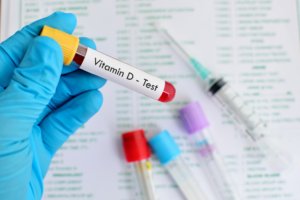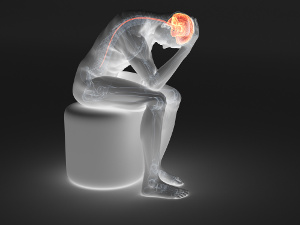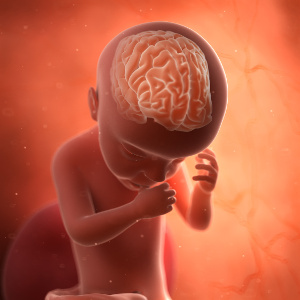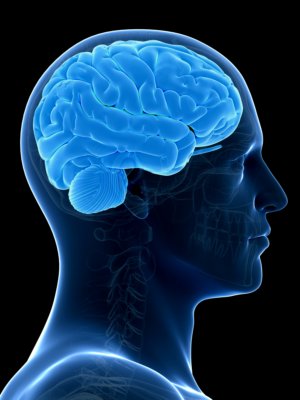afterLoad (456.41KB) (687μs)
afterInitialise (1.28MB) (42.56ms)
afterRoute (869.86KB) (15.67ms)
beforeRenderComponent com_tags (20.38KB) (2.54ms)
afterRenderComponent com_tags (1.49MB) (101ms)
afterDispatch (27.72KB) (4.76ms)
beforeRenderRawModule mod_articles_category (READ MORE...) (388.12KB) (18.7ms)
Before Access::preloadComponents (all components) (56.7KB) (3.89ms)
After Access::preloadComponents (all components) (103.05KB) (914μs)
Before Access::getAssetRules (id:8 name:com_content) (840B) (25μs)
After Access::getAssetRules (id:8 name:com_content) (7.05KB) (60μs)
afterRenderRawModule mod_articles_category (READ MORE...) (5.08KB) (125ms)
beforeRenderRawModule mod_tags_popular (Search) (4.81KB) (58μs)
afterRenderRawModule mod_tags_popular (Search) (3.09KB) (56.6ms)
beforeRenderRawModule mod_custom (Remember to download Heart Healthy Seniors) (816B) (36μs)
afterRenderRawModule mod_custom (Remember to download Heart Healthy Seniors) (4.86KB) (345μs)
beforeRenderRawModule mod_custom (Get additionel and more detailed knowledge ) (752B) (25μs)
afterRenderRawModule mod_custom (Get additionel and more detailed knowledge ) (1.67KB) (141μs)
beforeRenderRawModule mod_custom (BOOST YOUR IMMUNE DEFENSE) (608B) (14μs)
afterRenderRawModule mod_custom (BOOST YOUR IMMUNE DEFENSE) (928B) (27μs)
beforeRenderRawModule mod_custom (Are you taking supplements) (736B) (11μs)
afterRenderRawModule mod_custom (Are you taking supplements) (1.03KB) (21μs)
beforeRenderRawModule mod_custom (Antiaging) (720B) (9μs)
afterRenderRawModule mod_custom (Antiaging) (1.02KB) (18μs)
beforeRenderRawModule mod_custom (Exercise) (720B) (10μs)
afterRenderRawModule mod_custom (Exercise) (1.02KB) (18μs)
beforeRenderRawModule mod_custom (Check this before you buy a Q10 product) (752B) (9μs)
afterRenderRawModule mod_custom (Check this before you buy a Q10 product) (944B) (19μs)
beforeRenderRawModule mod_custom (Chronic fatigue tied Alan to his bed but Q10 capsules saved him:) (245.53KB) (6.53ms)
afterRenderRawModule mod_custom (Chronic fatigue tied Alan to his bed but Q10 capsules saved him:) (960B) (59μs)
beforeRenderModule mod_custom (Chronic fatigue tied Alan to his bed but Q10 capsules saved him:) (768B) (196μs)
afterRenderModule mod_custom (Chronic fatigue tied Alan to his bed but Q10 capsules saved him:) (1.3KB) (87μs)
beforeRenderRawModule mod_custom (Cholesterol-lowering without side effects:) (368B) (24μs)
afterRenderRawModule mod_custom (Cholesterol-lowering without side effects:) (2.19KB) (53μs)
beforeRenderModule mod_custom (Cholesterol-lowering without side effects:) (752B) (2μs)
afterRenderModule mod_custom (Cholesterol-lowering without side effects:) (1.28KB) (34μs)
beforeRenderModule mod_articles_category (READ MORE...) (21.32KB) (451μs)
afterRenderModule mod_articles_category (READ MORE...) (1.25KB) (43μs)
beforeRenderModule mod_tags_popular (Search) (5.17KB) (14μs)
afterRenderModule mod_tags_popular (Search) (1.27KB) (23μs)
beforeRenderModule mod_custom (Remember to download Heart Healthy Seniors) (1.17KB) (12μs)
afterRenderModule mod_custom (Remember to download Heart Healthy Seniors) (1.3KB) (22μs)
beforeRenderModule mod_custom (Get additionel and more detailed knowledge ) (368B) (10μs)
afterRenderModule mod_custom (Get additionel and more detailed knowledge ) (1.3KB) (20μs)
beforeRenderModule mod_custom (BOOST YOUR IMMUNE DEFENSE) (224B) (105μs)
afterRenderModule mod_custom (BOOST YOUR IMMUNE DEFENSE) (1.28KB) (52μs)
beforeRenderModule mod_custom (Are you taking supplements) (352B) (12μs)
afterRenderModule mod_custom (Are you taking supplements) (1.28KB) (23μs)
beforeRenderModule mod_custom (Antiaging) (336B) (9μs)
afterRenderModule mod_custom (Antiaging) (1.27KB) (21μs)
beforeRenderModule mod_custom (Exercise) (336B) (11μs)
afterRenderModule mod_custom (Exercise) (1.25KB) (39μs)
beforeRenderModule mod_custom (Check this before you buy a Q10 product) (352B) (11μs)
afterRenderModule mod_custom (Check this before you buy a Q10 product) (1.28KB) (23μs)
beforeRenderRawModule mod_menu (Main menu-US) (20.94KB) (1.84ms)
afterRenderRawModule mod_menu (Main menu-US) (152.66KB) (5.38ms)
beforeRenderModule mod_menu (Main menu-US) (720B) (8μs)
afterRenderModule mod_menu (Main menu-US) (4.36KB) (86μs)
beforeRenderRawModule mod_languages (Sprogskift) (3.44KB) (25μs)
afterRenderRawModule mod_languages (Sprogskift) (26.8KB) (4.06ms)
beforeRenderModule mod_languages (Sprogskift) (720B) (9μs)
afterRenderModule mod_languages (Sprogskift) (5.31KB) (27μs)
beforeRenderRawModule mod_finder () (6.34KB) (16μs)
afterRenderRawModule mod_finder () (214.16KB) (6.34ms)
beforeRenderModule mod_finder () (704B) (6μs)
afterRenderModule mod_finder () (5.79KB) (67μs)
beforeRenderRawModule mod_custom () (6.62KB) (1.01ms)
afterRenderRawModule mod_custom () (22.66KB) (2.48ms)
beforeRenderModule mod_custom () (704B) (10μs)
afterRenderModule mod_custom () (1.23KB) (66μs)
beforeRenderRawModule mod_menu (Main menu-US) (5.07KB) (138μs)
afterRenderRawModule mod_menu (Main menu-US) (5.8KB) (2.07ms)
beforeRenderModule mod_menu (Main menu-US) (720B) (7μs)
afterRenderModule mod_menu (Main menu-US) (1.25KB) (72μs)
beforeRenderRawModule mod_languages (Sprogskift Mobil) (912B) (24μs)
afterRenderRawModule mod_languages (Sprogskift Mobil) (3.89KB) (837μs)
beforeRenderModule mod_languages (Sprogskift Mobil) (720B) (4μs)
afterRenderModule mod_languages (Sprogskift Mobil) (1.27KB) (33μs)
beforeRenderRawModule mod_finder () (2.3KB) (11μs)
afterRenderRawModule mod_finder () (6.29KB) (843μs)
beforeRenderModule mod_finder () (704B) (7μs)
afterRenderModule mod_finder () (1.23KB) (62μs)
beforeRenderRawModule mod_custom () (8.66KB) (210μs)
afterRenderRawModule mod_custom () (904B) (219μs)
beforeRenderModule mod_custom () (704B) (3μs)
afterRenderModule mod_custom () (2.43KB) (29μs)
beforeRenderRawModule mod_custom () (688B) (86μs)
afterRenderRawModule mod_custom () (896B) (120μs)
beforeRenderModule mod_custom () (704B) (3μs)
afterRenderModule mod_custom () (2.71KB) (23μs)
afterRender (273.62KB) (5.83ms)
| 1 x afterRenderRawModule mod_articles_category (READ MORE...) (5.08KB) (30.01%) | 124.64ms |
| 1 x afterRenderComponent com_tags (1.49MB) (24.21%) | 100.55ms |
| 1 x afterRenderRawModule mod_tags_popular (Search) (3.09KB) (13.63%) | 56.60ms |
| 1 x afterInitialise (1.28MB) (10.25%) | 42.56ms |
| 1 x beforeRenderRawModule mod_articles_category (READ MORE...) (388.12KB) (4.5%) | 18.70ms |
| 1 x afterRoute (869.86KB) (3.77%) | 15.67ms |
| 1 x beforeRenderRawModule mod_custom (Chronic fatigue tied Alan to his bed but Q10 capsules saved him:) (245.53KB) (1.57%) | 6.53ms |
| 1 x afterRenderRawModule mod_finder () (214.16KB) (1.53%) | 6.34ms |
| 1 x afterRender (273.62KB) (1.4%) | 5.83ms |
| 1 x afterRenderRawModule mod_menu (Main menu-US) (152.66KB) (1.3%) | 5.38ms |
| 1 x afterDispatch (27.72KB) (1.15%) | 4.76ms |
| 1 x afterRenderRawModule mod_languages (Sprogskift) (26.8KB) (0.98%) | 4.06ms |
| 1 x Before Access::preloadComponents (all components) (56.7KB) (0.94%) | 3.89ms |
| 1 x beforeRenderComponent com_tags (20.38KB) (0.61%) | 2.54ms |
| 1 x afterRenderRawModule mod_custom () (22.66KB) (0.6%) | 2.48ms |
| 1 x afterRenderRawModule mod_menu (Main menu-US) (5.8KB) (0.5%) | 2.07ms |
| 1 x beforeRenderRawModule mod_menu (Main menu-US) (20.94KB) (0.44%) | 1.84ms |
| 1 x beforeRenderRawModule mod_custom () (6.62KB) (0.24%) | 1.01ms |
| 1 x After Access::preloadComponents (all components) (103.05KB) (0.22%) | 914μs |
| 1 x afterRenderRawModule mod_finder () (6.29KB) (0.2%) | 843μs |
| 1 x afterRenderRawModule mod_languages (Sprogskift Mobil) (3.89KB) (0.2%) | 837μs |
| 1 x afterLoad (456.41KB) (0.17%) | 687μs |
| 1 x beforeRenderModule mod_articles_category (READ MORE...) (21.32KB) (0.11%) | 451μs |
| 1 x afterRenderRawModule mod_custom (Remember to download Heart Healthy Seniors) (4.86KB) (0.08%) | 345μs |
| 1 x afterRenderRawModule mod_custom () (904B) (0.05%) | 219μs |
| 1 x beforeRenderRawModule mod_custom () (8.66KB) (0.05%) | 210μs |
| 1 x beforeRenderModule mod_custom (Chronic fatigue tied Alan to his bed but Q10 capsules saved him:) (768B) (0.05%) | 196μs |
| 1 x afterRenderRawModule mod_custom (Get additionel and more detailed knowledge ) (1.67KB) (0.03%) | 141μs |
| 1 x beforeRenderRawModule mod_menu (Main menu-US) (5.07KB) (0.03%) | 138μs |
| 1 x afterRenderRawModule mod_custom () (896B) (0.03%) | 120μs |
| 1 x beforeRenderModule mod_custom (BOOST YOUR IMMUNE DEFENSE) (224B) (0.03%) | 105μs |
| 1 x afterRenderModule mod_custom (Chronic fatigue tied Alan to his bed but Q10 capsules saved him:) (1.3KB) (0.02%) | 87μs |
| 1 x beforeRenderRawModule mod_custom () (688B) (0.02%) | 86μs |
| 1 x afterRenderModule mod_menu (Main menu-US) (4.36KB) (0.02%) | 86μs |
| 1 x afterRenderModule mod_menu (Main menu-US) (1.25KB) (0.02%) | 72μs |
| 1 x afterRenderModule mod_finder () (5.79KB) (0.02%) | 67μs |
| 1 x afterRenderModule mod_custom () (1.23KB) (0.02%) | 66μs |
| 1 x afterRenderModule mod_finder () (1.23KB) (0.01%) | 62μs |
| 1 x After Access::getAssetRules (id:8 name:com_content) (7.05KB) (0.01%) | 60μs |
| 1 x afterRenderRawModule mod_custom (Chronic fatigue tied Alan to his bed but Q10 capsules saved him:) (960B) (0.01%) | 59μs |
| 1 x beforeRenderRawModule mod_tags_popular (Search) (4.81KB) (0.01%) | 58μs |
| 1 x afterRenderRawModule mod_custom (Cholesterol-lowering without side effects:) (2.19KB) (0.01%) | 53μs |
| 1 x afterRenderModule mod_custom (BOOST YOUR IMMUNE DEFENSE) (1.28KB) (0.01%) | 52μs |
| 1 x afterRenderModule mod_articles_category (READ MORE...) (1.25KB) (0.01%) | 43μs |
| 1 x afterRenderModule mod_custom (Exercise) (1.25KB) (0.01%) | 39μs |
| 1 x beforeRenderRawModule mod_custom (Remember to download Heart Healthy Seniors) (816B) (0.01%) | 36μs |
| 1 x afterRenderModule mod_custom (Cholesterol-lowering without side effects:) (1.28KB) (0.01%) | 34μs |
| 1 x afterRenderModule mod_languages (Sprogskift Mobil) (1.27KB) (0.01%) | 33μs |
| 1 x afterRenderModule mod_custom () (2.43KB) (0.01%) | 29μs |
| 1 x afterRenderRawModule mod_custom (BOOST YOUR IMMUNE DEFENSE) (928B) (0.01%) | 27μs |
| 1 x afterRenderModule mod_languages (Sprogskift) (5.31KB) (0.01%) | 27μs |
| 1 x Before Access::getAssetRules (id:8 name:com_content) (840B) (0.01%) | 25μs |
| 1 x beforeRenderRawModule mod_custom (Get additionel and more detailed knowledge ) (752B) (0.01%) | 25μs |
| 1 x beforeRenderRawModule mod_languages (Sprogskift) (3.44KB) (0.01%) | 25μs |
| 1 x beforeRenderRawModule mod_custom (Cholesterol-lowering without side effects:) (368B) (0.01%) | 24μs |
| 1 x beforeRenderRawModule mod_languages (Sprogskift Mobil) (912B) (0.01%) | 24μs |
| 1 x afterRenderModule mod_tags_popular (Search) (1.27KB) (0.01%) | 23μs |
| 1 x afterRenderModule mod_custom (Are you taking supplements) (1.28KB) (0.01%) | 23μs |
| 1 x afterRenderModule mod_custom (Check this before you buy a Q10 product) (1.28KB) (0.01%) | 23μs |
| 1 x afterRenderModule mod_custom () (2.71KB) (0.01%) | 23μs |
| 1 x afterRenderModule mod_custom (Remember to download Heart Healthy Seniors) (1.3KB) (0.01%) | 22μs |
| 1 x afterRenderRawModule mod_custom (Are you taking supplements) (1.03KB) (0.01%) | 21μs |
| 1 x afterRenderModule mod_custom (Antiaging) (1.27KB) (0.01%) | 21μs |
| 1 x afterRenderModule mod_custom (Get additionel and more detailed knowledge ) (1.3KB) (0%) | 20μs |
| 1 x afterRenderRawModule mod_custom (Check this before you buy a Q10 product) (944B) (0%) | 19μs |
| 1 x afterRenderRawModule mod_custom (Antiaging) (1.02KB) (0%) | 18μs |
| 1 x afterRenderRawModule mod_custom (Exercise) (1.02KB) (0%) | 18μs |
| 1 x beforeRenderRawModule mod_finder () (6.34KB) (0%) | 16μs |
| 3 x beforeRenderModule mod_custom () (704B) (0%) | 16μs |
| 2 x beforeRenderModule mod_menu (Main menu-US) (720B) (0%) | 15μs |
| 1 x beforeRenderRawModule mod_custom (BOOST YOUR IMMUNE DEFENSE) (608B) (0%) | 14μs |
| 1 x beforeRenderModule mod_tags_popular (Search) (5.17KB) (0%) | 14μs |
| 2 x beforeRenderModule mod_finder () (704B) (0%) | 13μs |
| 1 x beforeRenderModule mod_custom (Remember to download Heart Healthy Seniors) (1.17KB) (0%) | 12μs |
| 1 x beforeRenderModule mod_custom (Are you taking supplements) (352B) (0%) | 12μs |
| 1 x beforeRenderModule mod_custom (Exercise) (336B) (0%) | 11μs |
| 1 x beforeRenderRawModule mod_custom (Are you taking supplements) (736B) (0%) | 11μs |
| 1 x beforeRenderModule mod_custom (Check this before you buy a Q10 product) (352B) (0%) | 11μs |
| 1 x beforeRenderRawModule mod_finder () (2.3KB) (0%) | 11μs |
| 1 x beforeRenderRawModule mod_custom (Exercise) (720B) (0%) | 10μs |
| 1 x beforeRenderModule mod_custom (Get additionel and more detailed knowledge ) (368B) (0%) | 10μs |
| 1 x beforeRenderRawModule mod_custom (Antiaging) (720B) (0%) | 9μs |
| 1 x beforeRenderRawModule mod_custom (Check this before you buy a Q10 product) (752B) (0%) | 9μs |
| 1 x beforeRenderModule mod_languages (Sprogskift) (720B) (0%) | 9μs |
| 1 x beforeRenderModule mod_custom (Antiaging) (336B) (0%) | 9μs |
| 1 x beforeRenderModule mod_languages (Sprogskift Mobil) (720B) (0%) | 4μs |
| 1 x beforeRenderModule mod_custom (Cholesterol-lowering without side effects:) (752B) (0%) | 2μs |
 An increased intake of B vitamins can help improve concentration and other cognitive skills in young patients that are about to develop schizophrenia and other psychoses, according to a study conducted by scientists from Orygen, the National Centre of Excellence in Youth Mental Health, Australia. Here, it is important to consider all the different factors that may lead to a deficiency of the essential B vitamins, including unhealthy diets, too much sugar, energy beverages, alcohol, and other stimulants. It appears that the unhealthy lifestyle that many youngsters have increases their risk of psychoses. It is therefore not enough to treat them with anti-psychotic drugs and psychological therapy, if the brain and the nervous system lack essential nutrients.
An increased intake of B vitamins can help improve concentration and other cognitive skills in young patients that are about to develop schizophrenia and other psychoses, according to a study conducted by scientists from Orygen, the National Centre of Excellence in Youth Mental Health, Australia. Here, it is important to consider all the different factors that may lead to a deficiency of the essential B vitamins, including unhealthy diets, too much sugar, energy beverages, alcohol, and other stimulants. It appears that the unhealthy lifestyle that many youngsters have increases their risk of psychoses. It is therefore not enough to treat them with anti-psychotic drugs and psychological therapy, if the brain and the nervous system lack essential nutrients.







 Most people are unaware of vitamin C’s key role in mental health and mood. According to a large population study that is published in Frontiers in Nutrition, having higher levels of vitamin C in the blood is linked to a lower risk of depression. The official dietary recommendations for vitamin C only focus on preventing the potentially lethal deficiency disease called scurvy, and things like stress, ageing, stimulant use, overweight, infections, and chronic illnesses can increase your need for the nutrient.
Most people are unaware of vitamin C’s key role in mental health and mood. According to a large population study that is published in Frontiers in Nutrition, having higher levels of vitamin C in the blood is linked to a lower risk of depression. The official dietary recommendations for vitamin C only focus on preventing the potentially lethal deficiency disease called scurvy, and things like stress, ageing, stimulant use, overweight, infections, and chronic illnesses can increase your need for the nutrient.
 Vitamin B12 is involved in the making of red blood cells. Its role in our nervous system is often overlooked. According to a large Irish study of older people that is published in British Journal of Nutrition, there is a link between lacking vitamin B12 and feeling depressed. Depression is a growing problem that comes with a huge human and socioeconomic price tag, which makes this study highly relevant. It is especially older people, public health servants, and politicians that should pay extra attention to vitamin B12 deficiencies and how to prevent them with simple and inexpensive means. It should also be noted that vegetarian and vegan diets, low stomach acid, and diabetes medication can increase the risk of having low levels of vitamin B12.
Vitamin B12 is involved in the making of red blood cells. Its role in our nervous system is often overlooked. According to a large Irish study of older people that is published in British Journal of Nutrition, there is a link between lacking vitamin B12 and feeling depressed. Depression is a growing problem that comes with a huge human and socioeconomic price tag, which makes this study highly relevant. It is especially older people, public health servants, and politicians that should pay extra attention to vitamin B12 deficiencies and how to prevent them with simple and inexpensive means. It should also be noted that vegetarian and vegan diets, low stomach acid, and diabetes medication can increase the risk of having low levels of vitamin B12. The number of children and adolescents with ADHD has skyrocketed in the past decade, and the human and socioeconomic costs are enormous. A major cause may be the widespread problems with vitamin D deficiency, according to a study from Turku University in Finland. It does not make things any easier that sun awareness campaigns fail to give people an alternative way of getting enough vitamin D all year around, and it is also a problem that many pregnant women don’t take their supplements as recommended.
The number of children and adolescents with ADHD has skyrocketed in the past decade, and the human and socioeconomic costs are enormous. A major cause may be the widespread problems with vitamin D deficiency, according to a study from Turku University in Finland. It does not make things any easier that sun awareness campaigns fail to give people an alternative way of getting enough vitamin D all year around, and it is also a problem that many pregnant women don’t take their supplements as recommended. Depression is one of the largest health burdens worldwide. Although depression can be caused by a number of different things, a new Taiwanese study published in Nutrients suggests that having high blood levels of magnesium is linked to fewer signs of depression. The scientists describe how magnesium supports different enzymatic processes that are involved in the nervous system, the hormone system, and in brain receptors with a key role in depression. Unfortunately, there are things that deplete our magnesium levels such as stress, poor diets, and the use of different types of medicine. To make matters worse, having less magnesium impairs our ability to utilize vitamin D that is important for our mood.
Depression is one of the largest health burdens worldwide. Although depression can be caused by a number of different things, a new Taiwanese study published in Nutrients suggests that having high blood levels of magnesium is linked to fewer signs of depression. The scientists describe how magnesium supports different enzymatic processes that are involved in the nervous system, the hormone system, and in brain receptors with a key role in depression. Unfortunately, there are things that deplete our magnesium levels such as stress, poor diets, and the use of different types of medicine. To make matters worse, having less magnesium impairs our ability to utilize vitamin D that is important for our mood. A growing number of children and teenagers suffer from anxiety, depression, and behavioral problems. Although there may be a number of underlying causes, it appears that vitamin D deficiency may be a contributing factor, according to a study that is published in the Journal of Nutrition. The problem is only made worse by the fact that many youngsters get too little sunlight during the summer period and that sun awareness campaigns warn against sun exposure without informing people about alternative ways of getting vitamin D. Vitamin D is important for bones but also for the brain, the nervous system, the immune defense, and many other physiological processes.
A growing number of children and teenagers suffer from anxiety, depression, and behavioral problems. Although there may be a number of underlying causes, it appears that vitamin D deficiency may be a contributing factor, according to a study that is published in the Journal of Nutrition. The problem is only made worse by the fact that many youngsters get too little sunlight during the summer period and that sun awareness campaigns warn against sun exposure without informing people about alternative ways of getting vitamin D. Vitamin D is important for bones but also for the brain, the nervous system, the immune defense, and many other physiological processes. More and more people experience despair and depression. There can be several underlying factors but according to a large German population study, lack of vitamin D increases the risk of depressive symptoms. The scientists explain how vitamin reduces local inflammation in the brain, which increases the risk of developing a depression. That is why it is so important to get plenty of vitamin D all year round because the nutrient affects our mood and energy level in a variety of ways.
More and more people experience despair and depression. There can be several underlying factors but according to a large German population study, lack of vitamin D increases the risk of depressive symptoms. The scientists explain how vitamin reduces local inflammation in the brain, which increases the risk of developing a depression. That is why it is so important to get plenty of vitamin D all year round because the nutrient affects our mood and energy level in a variety of ways.
 Depression is on the rise. The problem is often caused by inflammation in the brain. The British neuro-immunologist, Edvard Bullmore, has published the thought-provoking book called The Inflamed Mind, in which he describes the link between root canal treatment and depression, among other things. David Perlmutter, a neurologist, has written the book, Grain Brain, where he describes how gluten combined with carbohydrate overload also can cause inflammation in the brain. Depression, in other words, may occur when the blood-brain barrier is not as impermeable as assumed, and when the cytokines of the immune defense are able to cause undesirable brain inflammation. Numerous studies have shown that fish oil, vitamin D, magnesium, zinc, and selenium can improve a person’s mood by counteracting inflammation in the brain and other sites, and there is often a connection. It requires therapeutic doses, however, and it is vital that the supplements have good bioavailability, so the active substances reach the cells.
Depression is on the rise. The problem is often caused by inflammation in the brain. The British neuro-immunologist, Edvard Bullmore, has published the thought-provoking book called The Inflamed Mind, in which he describes the link between root canal treatment and depression, among other things. David Perlmutter, a neurologist, has written the book, Grain Brain, where he describes how gluten combined with carbohydrate overload also can cause inflammation in the brain. Depression, in other words, may occur when the blood-brain barrier is not as impermeable as assumed, and when the cytokines of the immune defense are able to cause undesirable brain inflammation. Numerous studies have shown that fish oil, vitamin D, magnesium, zinc, and selenium can improve a person’s mood by counteracting inflammation in the brain and other sites, and there is often a connection. It requires therapeutic doses, however, and it is vital that the supplements have good bioavailability, so the active substances reach the cells. During pregnancy, vitamin D plays an important role in the bone development of the unborn child, in the brain, and in other functions. Maternal lack of vitamin D during pregnancy may therefore have serious consequences for the fetus and its development. This also goes for the development of neurons in the dopamine-producing area of the brain, which can most likely result in dysfunctions of the dopamine balance, a problem that is seen in young individuals and adults with schizophrenia. This was demonstrated in a new study that is published in Journal of Neurochemistry. The study supports an earlier review article where it was seen that early stages of psychotic disorders like schizophrenia are linked to severe deficiencies of vitamin D and other nutrients with vital importance to brain health, especially during pregnancy.
During pregnancy, vitamin D plays an important role in the bone development of the unborn child, in the brain, and in other functions. Maternal lack of vitamin D during pregnancy may therefore have serious consequences for the fetus and its development. This also goes for the development of neurons in the dopamine-producing area of the brain, which can most likely result in dysfunctions of the dopamine balance, a problem that is seen in young individuals and adults with schizophrenia. This was demonstrated in a new study that is published in Journal of Neurochemistry. The study supports an earlier review article where it was seen that early stages of psychotic disorders like schizophrenia are linked to severe deficiencies of vitamin D and other nutrients with vital importance to brain health, especially during pregnancy. Psychological disorders represent society’s single largest disease burden, and an increasing number of people are affected by it. There can be a variety of causes, and lack of vitamin D appears to be an alarming risk factor. This is because vitamin D is involved in a host of different functions that are relevant for brain neurons, including signaling substances and the brain’s reward system that affects our mood. Vitamin D also helps protect the brain against toxins, atherosclerosis, and inflammation, according to a review article that is published in the science journal Cureus. But there are questions that need to be answered. How much vitamin D do we need? Can we get enough from sun exposure? Is there enough vitamin D in a regular vitamin pill? Why do children, seniors, pregnant women, overweight individuals, and dark-skinned people have an increased need for vitamin D? And which mineral is extremely important for the body’s ability to utilize vitamin D?
Psychological disorders represent society’s single largest disease burden, and an increasing number of people are affected by it. There can be a variety of causes, and lack of vitamin D appears to be an alarming risk factor. This is because vitamin D is involved in a host of different functions that are relevant for brain neurons, including signaling substances and the brain’s reward system that affects our mood. Vitamin D also helps protect the brain against toxins, atherosclerosis, and inflammation, according to a review article that is published in the science journal Cureus. But there are questions that need to be answered. How much vitamin D do we need? Can we get enough from sun exposure? Is there enough vitamin D in a regular vitamin pill? Why do children, seniors, pregnant women, overweight individuals, and dark-skinned people have an increased need for vitamin D? And which mineral is extremely important for the body’s ability to utilize vitamin D? Vitamin D is involved in the development of the brain structure and in brain functions. According to a review article that is published in Nutrients, vitamin D is of particularly great importance to the mental health of children and teenagers due to its long-term effect. This subject is highly topical as it is known that the widespread lack of vitamin D among children increases their risk of anxiety, depression, aggressive behavior, and other mental problems. It is vital for children and teenagers to get plenty of sun and supplements if necessary so they are sure to meet the new guidelines for vitamin D.
Vitamin D is involved in the development of the brain structure and in brain functions. According to a review article that is published in Nutrients, vitamin D is of particularly great importance to the mental health of children and teenagers due to its long-term effect. This subject is highly topical as it is known that the widespread lack of vitamin D among children increases their risk of anxiety, depression, aggressive behavior, and other mental problems. It is vital for children and teenagers to get plenty of sun and supplements if necessary so they are sure to meet the new guidelines for vitamin D. "After about one week of taking the Q10 supplement I could feel a huge difference," says 23-year old Alan Piccini, who has been suffering from extreme fatigue and muscle aches ever since he was a child.
"After about one week of taking the Q10 supplement I could feel a huge difference," says 23-year old Alan Piccini, who has been suffering from extreme fatigue and muscle aches ever since he was a child. “Taking capsules with co-enzyme Q10 has freed me of the severe side effects of my cholesterol lowering medicine,” Mrs Franken explains.
“Taking capsules with co-enzyme Q10 has freed me of the severe side effects of my cholesterol lowering medicine,” Mrs Franken explains.